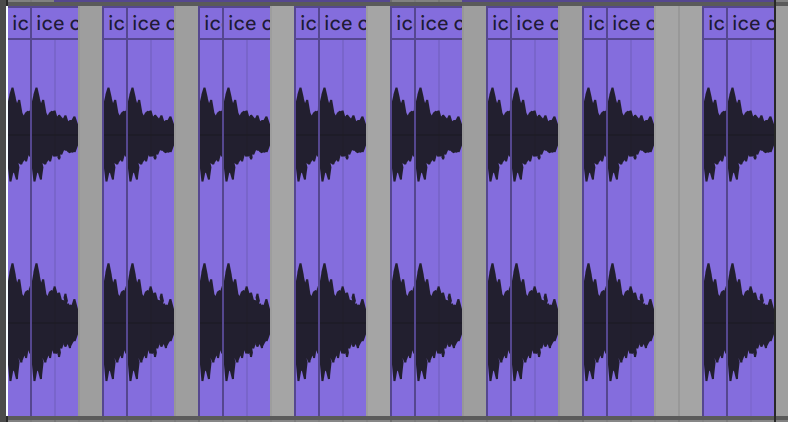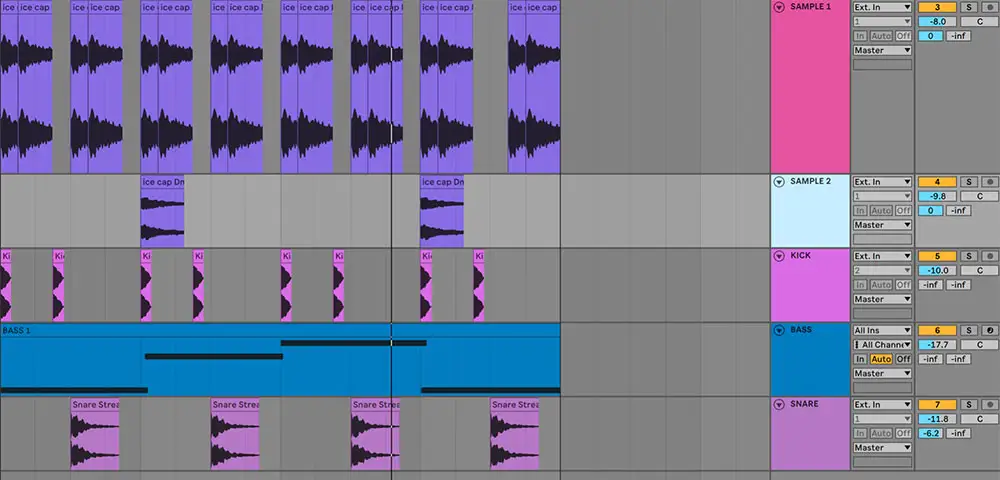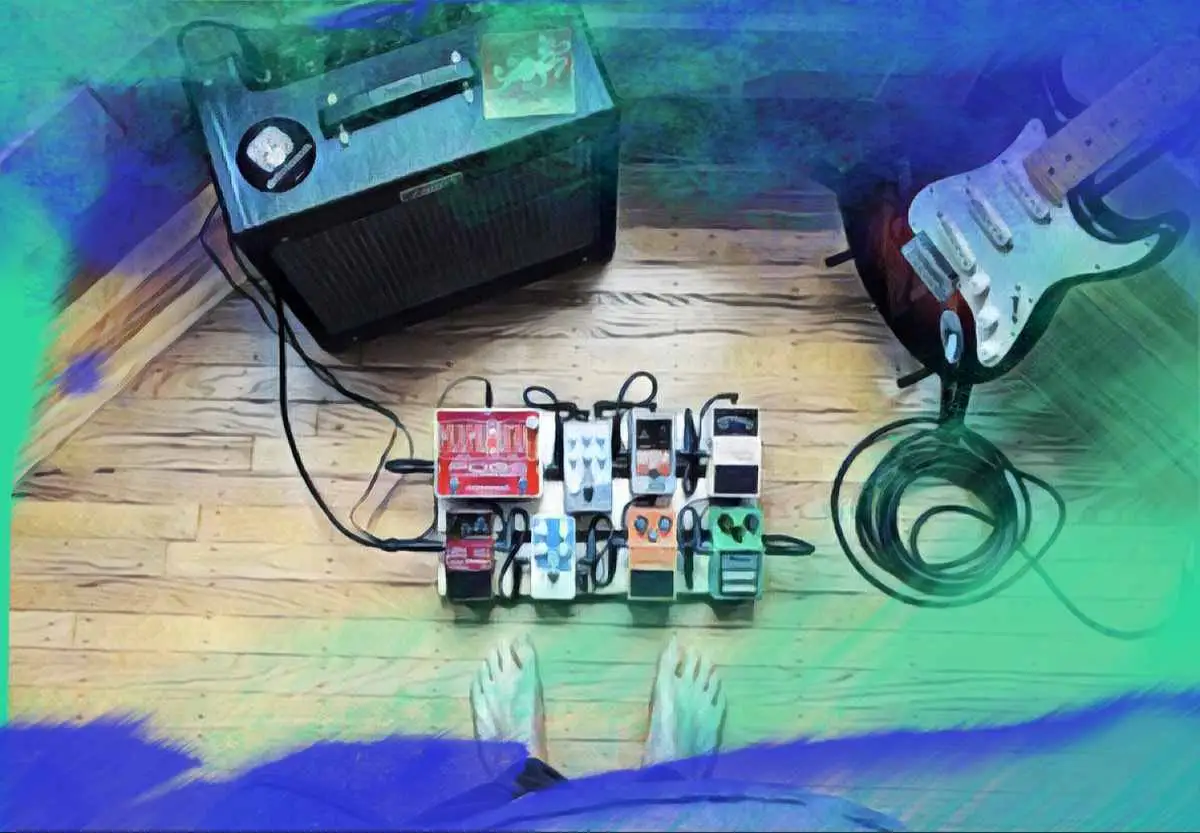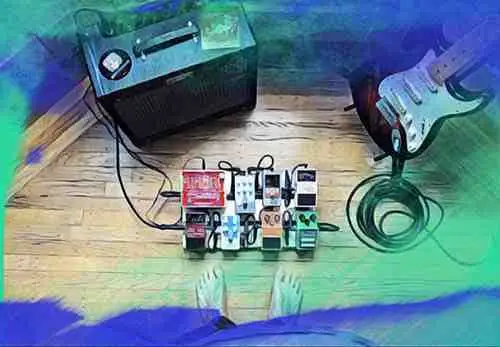One of the most long-held debates surrounding electronic music production is whether using loops is cheating. After all, using loops is undoubtedly more efficient than recording an instrumental from scratch. Below, we’ll dive into the debate so that you can determine if these tools are a good fit for your production style.
What Is Considered A Loop?
A loop is an audio clip that can be repeated in perpetuity. With loops, the end of the clip should transition seamlessly to the beginning of the clip. Loops can consist of drum sounds, instruments, or a combination of the two.
You can buy loops online within sample packs or on their own, and your DAW probably comes with a few loops of its own. As you would with any sample, it’s essential to make sure you have the proper license to use a loop in your song. Producers use loops to build up a section quickly. Since loops have a set rhythm and tone, they can certainly serve as a shortcut for rapidly building out your sound.
Loops can also be chopped up and manipulated just like any other sample. While loops may lend themselves towards more novice producers, experienced professionals alike use loops in their projects.
Why Using Loops Isn’t Cheating.
Ultimately, this is an opinion, but I’m a firm believer that using loops isn’t cheating. Below, I’ll outline the ways I believe that these tools are valuable for any producer.
1. A Loop Isn’t A Complete Song
For one thing, a loop isn’t a complete song on its own. The producer still needs to place a loop strategically within a composition, potentially stretch it according to a song’s BPM, and manipulate it further if desired. Loops can serve as shortcuts, but they don’t necessarily substitute for understanding composition and creating a refined song.
You could have one producer who stacks a couple of loops and presents that as a song. A different producer might intersperse a loop throughout varied sections of a piece to add variety, which may be more engaging to a listener. Therefore, it’s all about how you choose to use a particular loop.
2. Learn To Steal Like An Artist
With music, nothing is 100% original. All of us are constantly borrowing from our favorite artists and musicians consciously and unconsciously. Hence, using a loop isn’t “cheating” more than it is to use a sample, borrow a couple of notes from a favorite melody , or even be inspired by someone else’s work.
Rihanna and Jay-Z’s classic “Umbrella” uses a Garageband drum loop for the basis of the song. The important part isn’t that they used a loop; it’s ultimately what they brought to the loop that made for a Grammy-award-winning track.
As long as you’re making an effort to use the loop in a way that feels unique to your sound, there’s nothing wrong with having them in your songs.
3. Producers Don’t Have To Be Multi-Instrumentalists
One of the best things about loops is that they encourage you to use new instruments and sounds in a way you haven’t in the past. Discovering new ways to play instruments from “scratch” takes an incredible amount of time, effort, and dedication. I think it’s important to remember that producers don’t have to be incredibly skilled instrumentalists to make good music.
Loops are one of the best tools that make this possible. While it’s helpful for producers to understand the basics of some instruments, using a loop can make this process much faster. This tool allows producers to create the sound they seek without constantly diving into the theory and technicality of each instrument.
Classifying loops as cheating is subjective and doesn’t matter. You’re still making a new sound, even if that includes building on top of a preexisting one.
Ways To Use Loops
Eager to start using loops but don’t know where to start? Here are a few ways I’d recommend incorporating them into your production process.
- For Improvisation : If you’re an instrumentalist, songwriter, or producer trying to get out some ideas, loops make excellent improvisation tools. Put a loop on repeat and solo over it with vocals, drums, or any sound you can think of using. This method is a great way to start brainstorming for a new song .
- References : If you like the rhythm or groove of a loop but not necessarily the sound itself, use it as a reference instead. Once it’s stretched to your DAW’s timeline, see where different sounds fall within the grid and replace them according to taste.
- As They Are Intended : As long as you have purchased the license to the loop you’d like to use, you are free to use them in any way, shape, or form, even if that means just plopping it into your timeline. Don’t feel obligated to go out your way to radically transform your loop of choice unless you’d like to.
- Samples : You can also treat loops as another audio sample. This could mean stretching the loop, pitching it up or down, or just cutting up the sections you’d like to use. Sampling your loop is an excellent way to add more of your spin on the audio file.
For example, I can start with this melodic loop from a sample pack I’ve purchased:

Listen to Audio Here
Then, I can sample the loop by chopping it at certain points, and pitching the audio up or down (Remember, there’s no one right way to sample, feel free to experiment and get creative):

Listen to Audio Here
Finally, I added some simple drums, a bass, and some audio effects to give the 4 bars some more character:

Listen to Audio Here
As you can see, the end result sounds quite different from the original loop, and this is just a starting point for a track. I’ve also made a TikTok walking you through the process here.
While you’re sure to find some musicians who will scoff at the thought of using loops, it’s not cheating. Loops still require creative instinct and skill to compose in a way that makes sonic sense. Artists like Kendrick Lamar, Martin Garrix, Justice, Rihanna, and others have all used loops in their songs. Loops help artists quickly express creativity in an efficient, effective way. If you’re a loop user, keep carrying on.






